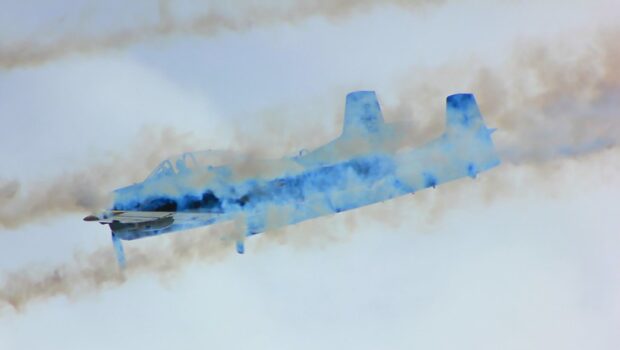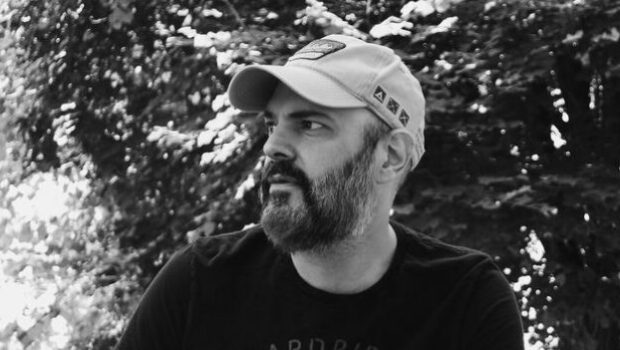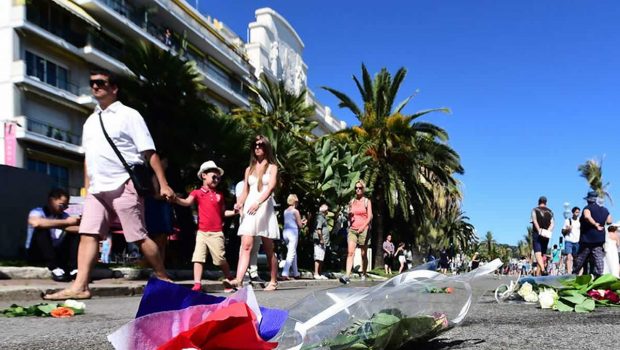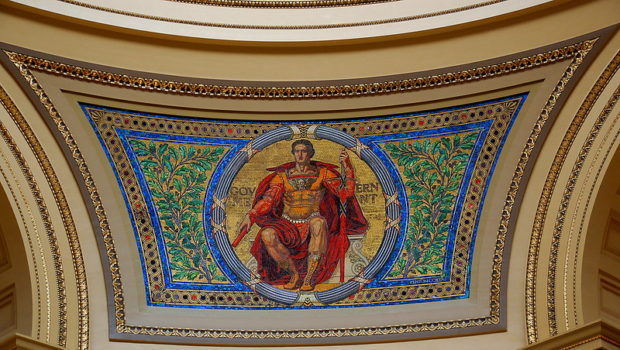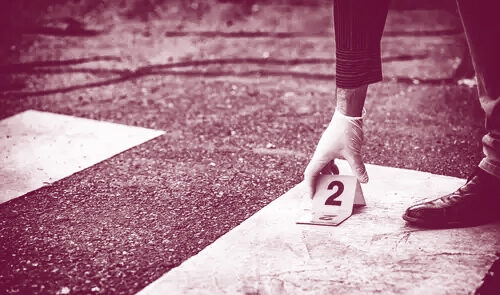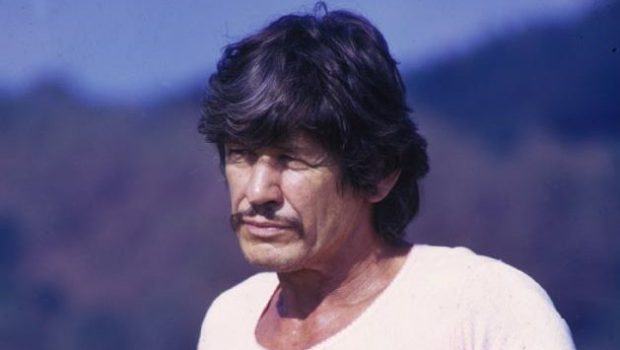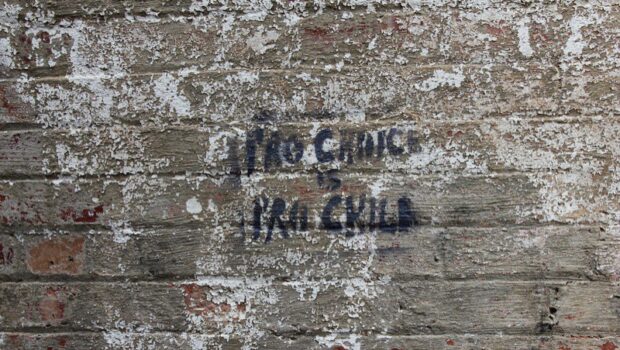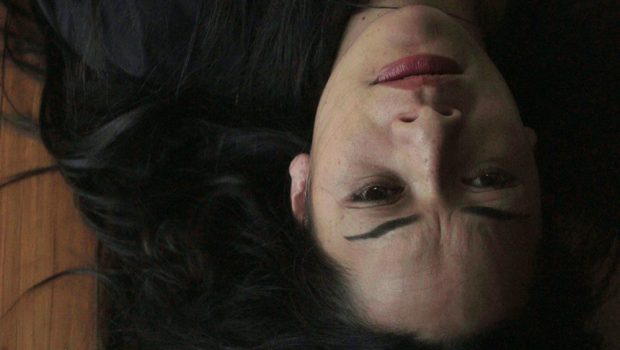On war
Rogelio Villarreal
Ukraine, the peace and future of democracy
War is hell.
—General William Tecumseh Sherman (1820–1891)
War is the fate of civilization, its drive and break. Humanity has not known an age of peace. At this moment there are ongoing armed conflicts in several parts of the world, wars between countries or among factions within the same country. As Russia attacks Ukraine there is fire and blood in Libya, Syria, Ethiopia, Yemen, Islamic terrorism in the Middle East…
In the last year several coups have taken place, mostly in Africa: Chad, Guinea–Conakry, Mali, Niger, and Sudan, in addition to Myanmar (Ayuda en Conflicto, 2022). The wars in the 20th century, and those of previous centuries, are countless. It is estimated that in the Gallic Wars of the Romans against the Gallic tribes (58–51 B.C.) there were between 400 thousand and a million people killed, and another million enslaved (White, 2011). It is estimated that up to 55 million people were killed during World War II, including soldiers and civilians (Holocaust Encyclopedia, 2019). We are talking about hundreds of thousands or millions of people, i.e., tragedies. It is not only about figures, but about events that leave behind a long trail of pain and despair. “A single death is a tragedy, a million deaths are a statistic”, says a quote attributed to Stalin. This should not be so.
In México, in 2006, the president at the time, Felipe Calderón, declared war on organized crime, which now holds a permanent war against the State. This has resulted in the deaths of 350,000 people and over 72,000 missing, according to official figures from January 2006 to May 2021 (Pardo Veiras and Arredondo, 2021).
According to the UN, by September 2021 there were 13,400 nuclear weapons in the world. On January 22, 2022, the Treaty on the Prohibition of Nuclear Weapons came into effect, and on February 3 the United States of America and the Russian Federation agreed to extend the Treaty for further reduction and limitation of strategic offensive arms (new START: Strategic Arms Reduction Treaty) until February 4, 2026 (United Nations 2021). Notwithstanding this agreement, after the invasion to Ukraine on February 24, the Russian president, Vladimir Putin, ordered on February 27 that deterrent forces, which include nuclear weapons, to go into maximum state of alert (CNN en español, 2022). According to Nuclear Threat Initiative, Russia has deployed 1,444 nuclear warheads. Considering the warheads that have not been deployed, stored, or that are waiting to be dismantled, the entire arsenal could reach 6,370 weapons (NTI n.d.). After the collapse of the Soviet Union, Ukraine held the third largest nuclear weapon arsenal, which was returned to Russia by 2001.
On October 2021, the American president, Joe Biden, made public the country’s nuclear arsenal numbers: 3,750 nuclear warheads and an additional two thousand waiting to be dismantled (CNN en español, 2022). Since 1945, when the United States dropped two atomic bombs over Hiroshima and Nagasaki, more than two thousand nuclear bombs have been detonated to test how they function and their power. Over half of these tests have been conducted by the United States (BBC, 2017).
On August 29, 1949, the Soviet Union successfully detonated its first nuclear bomb, the RDS–1, followed by another two in 1951. Between 1949 and 1990 the Soviet Union ran over 900 nuclear tests in different environments: 216 tests in the atmosphere, including five at an altitude of 50 km; 496 underground nuclear tests; and three submarine tests (Nuclear Weapon Archive n.d.).
On October 9, 2006, North Korea announced that it had detonated its first nuclear bomb, followed by another on May 2009, and an additional three in 2013, 2016, and 2017. The North Korean agency (KCNA) informed on January 2022 that “it could resume nuclear and long–range weapons tests” after a meeting held by the political bureau, with Kim Jong Un in attendance (DW 2022).
Despite this somber outlook, the number of armed conflicts since the end of World War II has seen a downward trend. Still, other phenomena such as racism, intolerance, and fanatism, nationalisms, and fundamentalisms, in addition to poverty and disease which often cause acts of violence—as happened during the bloody Yugoslav Wars, which took place between 1991 and 2001, or the massacres against the Tutsi ethnic minority perpetrated by the Hutu ethnic majority in Ruanda, have seen an upward trend with increased violence (Dupuy and Rustad, 2018). Yet, according to Max Roser, there may be a reason to be optimistic. With the data he has gathered on war conflicts since the 15th century to our day, the researcher at Oxford University concludes that, though the higher peaks in deaths registered during this period occurred in the 20th century, the figure has decreased ever since (Roser et al., 2016). The Canadian psychologist Steven Pinker argues that less civilians and military personnel die now than in the past: war is increasingly less profitable, not only economically but politically since taking control of a territory is no longer as relevant as it was two hundred years ago (Pinker, 2011). The focus of the conflict has moved to other political arenas, especially in an integrated global economy (Beauchamp, 2015). Though President Vladimir Putin (b. 1952) and terrorist organizations such as the Islamic State appear to think otherwise, that war is profitable, it is difficult to believe that there is a possibility for a major conflict between Russia and NATO. Unfortunately, that possibility cannot be ruled out.
When Russia annexed Crimea, Pinker answered a question posed by a journalist:
—Russia under Vladimir Putin seems to be a clear exception to this pattern — clearly, Putin thinks waging war in Ukraine is worth the cost in international sanctions and opprobrium, not to mention lives lost. Why do you think that is?
—I think there’s been backsliding. Gorbachev clearly felt it: that’s why he didn’t call out the tanks when the Berlin Wall fell. He clearly wanted to avoid military confrontations that would result in hundreds and thousands of deaths. Putin is definitely backsliding, and he’s quite explicit about it. He places a high value on recapturing Russian national grandeur. That’s a value that obviously can be at odds with preservation of lives (Beauchamp, 2015).
Pinker, it would seem, did not consider that all that has been built through centuries to promote peace can be destroyed in an instant. Putin is a leader whose worldview comes from the past. Elected for the first time as president in 2000, he longs for the glory and greatness of ancient Tsarist Russia and the powerful Soviet Union and its influence on the world. For such a person, the complexity of government and politics is simplified.
On his childhood and life Vladimir Fédorovski, former diplomat and speaker for the Movement for Democratic Reform in the last days of the USSR, writes:
It is in this hard postwar environment, in utter misery, where young Putin is raised, in a 20–square–meter community apartment located in one of the most disfavored neighborhoods in the city, and subject to the laws of the street, where one must fight to survive. His manner of responding nowadays eye for an eye in the international stage goes back to that childhood, marked by an acute sense of nationalist heroism combined with the rage of the kid who wants to get ahead (Fédorovski, quoted in Whittlell, 2022).
Putin was an agent for the old Soviet Committee for State Security (KGB). His ego knows no limits. Several analysts offer explanations as to why Putin decided to invade Ukraine, and one of the most important is his urge to impose himself and to control a territory that he considers to be a part of the mythical Great Russia, as he stated in a speech (2021). Putin is a leader who likes to be photographed as he rides bare–chested through the steppes of central Asia; as a resolute Cossack who defies the world; as he represses and punishes homosexuals, the LGBT+ community—which has led personalities such as Madonna and Stephen Colbert to parody him as an eccentric gay icon (VerTele, 2017; Markosmo, 2014), women, and critical news reporters in his country.
“Putin is a complex character,” Fédorovski states. “He conducts his social revenge on his laborer and farmer origins by becoming the supreme leader of the country with a mission for historical greatness” (in Whittlell, 2022). At the KGB he learned espionage and counterespionage techniques: information, data screening, removing adversaries with diverse methods, bludgeoning or poisoning them. His animosity against the West is well known. The authors whom he reads and admires —Lev Gumilev or Aleksander Dugin, for example— talk of a Great Russia, the sacrifices that will have to be made for such ideals and the fight against the West, a sort of new crusade (Ortiz Redondo, 2018). This seems to explain his actions. It is not for himself, but for Russia’s survival, especially after the Soviet Union imploded, that time when the United States believed that a new American century of influence and expansion was at hand. On this count, the internationalist Brenda Estefan argues that:
The Kremlin is acting against two chronometers. On May 9, Russia commemorates the victory in the “Great Patriotic War”, the date marked by Moscow with the capitulation of Nazi Germany before the entry of the Red Army into Berlin (although the capitulation was signed on May 8 at 23:30 hours Berlin time, it was already May 9 in Moscow). It is an important day because the Russian propaganda and Putin himself somehow justify the military action in Ukraine by presenting it as a type of continuation of the Great Patriotic War and, on this date, Putin will give a speech where he will attempt to present victory in Ukraine (Estefan, 2022).
During the almost two decades that Putin has been in power he has not missed a chance to try to undermine western democracies by means of insidious campaigns barraging socio–digital networks with fake news and conspiracy theories. His main target is what he calls “America’s empire of lies” (Cohen, 2022). To achieve that, he has taken advantage of his close ties with the leaders of the Cuban, Venezuelan, and Nicaraguan dictatorships (Cabrera, 2022). Donald Trump’s closeness to the Russian president raised concerns, especially because of the suspicion that the latter had interfered in the 2016 election and had helped Trump win the presidency. “A considerable number of Americans share our ideas of what the world should be”, Putin said at the time. Trump was criticized for not including the members of the Cabinet in his meetings with the Russian leader, not informing his own team about their conversations, and not issuing written versions thereof, a common diplomatic practice before he took office (Dönmez et al., 2019). “In 2014, a sports columnist asked Erik Trump how his family was able to afford so many golf courses having such a poor credit score, to which he replied: ‘We don’t use American banks, we get all the funding we need from Russia’” (Garza, 2022).
Other political leaders have expressed sympathy for Putin, such as Nigel Farage, who started the Brexit campaign, and not too long ago even the former French candidate Marine Le Pen. In Mexico members of the Partido del Trabajo and Morena in Congress created a Mexico–Russia Friendship Group. President López Obrador has accused the press of being “biased” against Putin, while minimizing the horror and blood. “The horror sowed by Putin in Ukraine is in all the media outlets. But very few of them are looking at the corrosive poison that, without it being polonium or the Novichok, the Kremlin spills day in and day out in the soul of nations that are free up to now, including our own” (Garza, 2022). On April 27, 2021, the Mexican president, also known by his initials AMLO, extended a formal invitation to Putin to visit the country due to the 200 anniversary of its independence (El Economista, 2021).
There is no doubt. Putin has the hubris syndrome (in ancient Greek ὕβρις, hýbris). Hubris is a concept that can be translated as excess pride and arrogance.
The hubris syndrome is a psychiatric disorder that affects people in power in any of its forms and has been described in many areas, from politics to finance. The absence of humility and empathy when exercising (power) can cause qualities such as trust and self–confidence to transform into pride, arrogance and high–handedness characteristic of the person with this syndrome (González–García, 2019).
Authoritarian leaders are more common in the world, and apparently they appear to suffer from this syndrome. Nationalists and populists of a different sign think that society is divided between an elite and the people, which they claim to embody, and they capitalize public unease and indignation before the corruption of previous governments and the elevated levels of insecurity in their countries. The Guardian asked a group of political scientists coordinated by Kirk Hawkins, professor at Brigham Young University, to design an index of populism in accordance with the rhetoric expressed by different heads of state. The team examined speeches by 140 leaders that ruled in forty countries in the last twenty years, whom they classified on a scale of 0 (not populist) to 2 (very populist).
Hugo Chávez, president of Venezuela between 1999 and 2013, had a score of 1.9. In second place came his successor, Nicolás Maduro, with a score of 1.6. In third place, with a score of 1.5, came Evo Morales (Bolivia) and Recep Tayyip Erdogan (Turkey). Viktor Orbán (Hungary), Silvio Berlusconi (Italy), Donald Trump (United States), Narendra Modi (India), Jair Bolsonaro (Brazil) and Putin were “somewhat populist”, while Mexico’s Andrés Manuel López Obrador was “populist” (Mizrahi, 2019; Lewis et al., 2019).
Nicolás de Pedro, researcher at the Barcelona Centre for International Affairs, writes that
Putin is a referent to right–wing populisms on both sides of the Atlantic. Years ago, long before Donald Trump’s political appearance, the most reactionary wing of the Republican Party, the Tea Party, and American extreme right racist groups showed their admiration for the Russian president. During Trump’s presidential campaign he presented him (Putin) as an archetype of his presidential aspirations. Something similar has happened with most European xenophobic movements. Both the French Front National (FN) and the German Alternative für Deutschland (AfD), or the British United Kingdom Independence Party (UKIP) seem fascinated by the image projected and cultivated by Putin of a virile traditionalist energetic leader. By different roads, parties such as Syriza in Greece, the Italian Movimento 5 Stelle or Podemos in Spain–which should be noted are left–wing populists–also show great syntony with Moscow, although, in this case, for alleged “geopolitical” reasons. Thus, their sympathies are chosen by a sort of expanded “axis for resistance” that includes in addition to Russia countries such as Iran, Syria or Venezuela united by their clash with Washington. In this context, one wonders about the nature of Putinism and the possibility of including it or not within the populist wave in Europe (Pedro, 2017).
To reinforce the legitimacy of his mandate Putin has the national support of a loyal left and the right–wing opposition–the Communist Party of the Russian Federation and the Liberal Democrat Party–that stir the public space with demagogic appeals, but do not pose any actual political challenge or question the figure of the president (Pedro, 2017).
Former Brazilian president and current candidate to the presidency Luiz Inácio Lula da Silva brings a simplistic perspective to the discussion:
We politicians reap what we sow. If I sow fraternity, solidarity, harmony, I’ll reap good things. If I sow discord, I’ll reap quarrels. Putin shouldn’t have invaded Ukraine. But it’s not just Putin who is guilty. The U.S. and the E.U. are also guilty. What was the reason for the Ukraine invasion? NATO? Then the U.S. and Europe should have said: “Ukraine won’t join NATO.” That would have solved the problem (Nugent, 2022).
Democracy is already a minoritarian form of government in the world. According to a report by the V–Dem Institute (2022), 70 per cent of the world population, about 5 billion people, live today under dictatorships or authoritarian governments. It is a democratic regression that has led us to the same levels that were observed in 1989.
Is Vladimir Putin a fascist? The question is pertinent, since his regime is authoritarian. For Francine Hirsch, visiting academic at the Davis Centre for Russian and Eurasian Studies of Harvard University, “since Russia’s brutal invasion of Ukraine on Feb. 24, something has shifted. Putin has completely shut down Russian civil society and criminalized free expression while launching a massive campaign of propaganda and disinformation. Russia is rapidly becoming a totalitarian state. The pieces are all there” (Hirsch, 2022). Andrei Kolesnikov, researcher at the Carnegie Endowment for International Peace, agrees: “Putin’s public call to ‘self–cleaning’ of society is yet another totalitarian practice, more than authoritarian. So is dividing the population in ‘patriots’ versus ‘traitors to the nation’ or in ‘fifth–columnists’” (2022). Russian journalist Olesya Zakharova sees a dangerous precedent:
Putin’s propaganda is breaking records of effectiveness. Monstrosities and atrocities, such as an attack against another country, killings, torture, arrests for using specific words (sometimes even a single word: ‘war’) and hatred incited in society, are presented as the salvation of Russia, and indeed of the entire ‘Russian world’. Unfortunately, people believe it.
All of Putin’s speeches represent a collection of rhetorical and discursive devices that have been already tried and tested by other dictators (from Hitler to Gaddafi, Mubarak, Saddam Hussein and others). Despite its apparent diversity, their language boils down to a few recurring and rather simple linguistic techniques (Zakharova, 2022).
When discussing fascism right–wing dictatorships such as those of Francisco Franco (Spain), Augusto Pinochet (Chile), or Jorge Rafael Videla (Argentina) come to mind. However, in his study of political extremes Seymour Martin Lipset (1981) describes other movements that have been classified as fascists because of the “intent of maintaining certain privileges or privileged positions through authoritarian means”. These may be divided into left–wing, center, and right–wing fascisms. A characteristic shared by these movements are particularistic or group interest and nationalist ideologies, which differ from ones that attempt to “protect the traditional position of old elites (right–wing)”; to “protect the interests of the ‘middle class’ against threats by the State, big companies, and unions (center)”; and “appeal populistically to the anti–elitist sentiments of those who are marginalized (left–wing)” (Lipset 1981).
It is not hard to understand why the Russian president enjoys great sympathy in his country and even outside its borders. In Mexico it is not uncommon to find in social media frequent displays of sympathy for a leader that is assumed to have inherited the Soviet Union and who actually fights Nazism in Ukraine.
The war that Putin has waged against Ukraine is savage and violates international humanitarian law which states that armed conflict should, in theory, follow (International Committee of the Red Cross, 2016) —and perhaps it is not farfetched to think that he took advantage of the United States’ exit from Afghanistan to attack the neighboring, sibling, country of common origin. Bombing civilian targets indiscriminately is an infamy, a war crime: hospitals, schools, housing buildings, train and bus stations, airports, factories; blocking humanitarian corridors, murdering unarmed civilians in cold blood––and to add insult to injury, to deny that it has been done and blame Volodymyr Zelensky of creating media montages. To this we have to consider the millions of people who have fled Ukraine and the millions who have lost everything. It is not a conventional war; it is a sadistic attack that will leave enormous damage to Ukraine and its population. It is difficult to foresee how it will end. Perhaps Russia Will end up appropriating the historical region of Donbas —Donetsk and Lugansk, and perhaps it will be a Pyrrhic victory because the cost of the war will be an extremely high price for the Russian people to pay. Besides, rebuilding Ukraine will be a colossal endeavor. Russia will be a pariah among nations, and the sanctions from the West will continue to be in force throughout the years. Putin’s future is uncertain, but perhaps hubris will lead him to act irrationally, at least until nemesis takes over.
Many of the most radical criticisms to the West come from Western intellectuals, whose darts point mainly to Western European countries and to the United States, which is frequently alluded to as “the Empire”. For many of those critics, the West, capitalism, the free market, imperialism, and neoliberalism are the same, as can be read in articles by Noam Chomsky—who defines himself as “libertarian socialist”, Naomi Klein—who knows nothing of academic rigor, or the Lacanian neo–Stalinist Slavoj Zizek. Some of the self–proclaimed glories of local academia, politics, and journalism openly proclaim revolutionary violence against “the Empire”. Unfortunately, such criticism rarely considers serious options to correct what they call the decadence, decline, or imminent disappearance of capitalism. Does that criticism to the West mean that the East is better or that there can be a better version of the West? In some cases, criticism is inclined to the option of democratic socialism or the “socialism of the XXI century” proposed by Nicolás Maduro and his allies in Latin America. There are also those who to this day defend the totalitarianism of the Cuban dictatorship, despite the human cost.
It is clear that in the West, the heir of the Enlightenment, not everything works as it should, and the consistent criticism of its aberrations is more necessary today than ever. The West’s long history has not been free of setbacks, accidents, deviations, and relapses, but neither has it been free of qualitative leaps. It has gone through dark times—invasions, colonialism, exploitation, wars, terrorism. At times it has appeared as though its end is near. The last time this was considered was in the first years of World War II, when a grotesque and terrifying version of Western culture appeared set to win, one that was the denial of that Western culture. Marx said that at the core of capitalist societies exist the contradictions that will lead to their destruction or transformation. This is partly true if we observe the profound changes that have taken place in the West throughout the centuries. Still, he was wrong when predicting the birth of socialism in advanced industrial societies.
In the West there are trends that oppose each other, sometimes violently, but that is where humanity’s most transcendental steps have been taken: democracy, equality, tolerance, freedom, human rights, the advance of science and technology. It is this trend the one that should be strengthen. Hirsch ends his article as follows:
As Russian institutions are being brought into line with Putin’s regime, virtually all ideas expressed in the Russian media are now projections of an official position. Western observers have asked whether Russian pundits who call for the elimination of Ukraine as a nation and Russian academics who put forth an imperialist agenda are really expressing the intentions of the state. The answer is yes (2022).
Ukraine is supported by many countries, which have sent arms and aid, but it is urgent to find measures to prevent wars. “It is clear that American and French artillery, Slovakian and British missile batteries, Polish and German tanks, multiply the Ukrainian army’s capabilities”, Estefan states (2022). It is necessary “to drive economic security: reduce the economic dependency of the assailants and create stronger commercial, investment, scientific and technological bonds between allies and partners”, Liz Truss, Minister of Foreign Affairs for the United Kingdom, argues. “War should be a catalyst to restart, remodel, and blend a global security architecture that has been lacking in Ukraine”, she expressed in a speech at House Mansion in London on April 27. “Ukraine’s victory is a strategic imperative for all of us”, “the G7 and its partners mis keep on pressuring Russia through more severe sanctions, such as cut off imports of oil and gas once and for all, provide more military aid, as well as continuous humanitarian aid”. “If Putin succeeds, there will be incalculable misery in all Europe and terrible consequences in all the world” (Truss, 2022).
Winston Churchill was right: democracy is the worst form of government, except for all the others that have been tried.
*Translation by Leonora Smithies; style correction by Armando Palacios–Sommer. The Spanish version of this text was published in the book El conflicto Rusia–Ucrania. Geopolítica y guerra, Antulio Sánchez, coord. (México: Topodrilo, 2022)
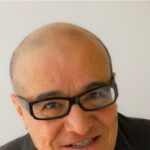 Rogelio Villarreal (Torreón, Coah., 1956) is a journalist, editor, and university professor at ITESO. He is the autor of, among other books, El tamaño del ridículo (2009) and ¿Qué hace usted en un libro como éste? (2015). He is the director of the digital magazine Replicante.
Rogelio Villarreal (Torreón, Coah., 1956) is a journalist, editor, and university professor at ITESO. He is the autor of, among other books, El tamaño del ridículo (2009) and ¿Qué hace usted en un libro como éste? (2015). He is the director of the digital magazine Replicante.
References
BBC Mundo (September 4, 2017). “Las detonaciones nucleares más potentes de la historia”. BBC Mundo. Accessed on April 29, 2022, bbc.com/mundo/noticias-internacional-41143051
Beauchamp, Zack (June 4, 2015). “Steven Pinker explains how capitalism is killing war”. Vox. Accessed on April 25, 2022, vox.com/2015/6/4/8725775/pinker-capitalism
Britannica (n.d.). William Tecumseh Sherman (Lancaster, February 8, 1820–New York, February 14, 1891) was an American military, educator, and writer. His fame comes from his participation with the general range in the American Civil War (1861–1865); although he received praise for his efficient use of military strategy, he was also harshly questioned because of the relentless scorched–earth policy that he applied in the so–called total war against the enemy. Because of this he has been called “the first modern general”. “William Tecumseh Sherman”. Britannica. Accessed on April 26, 2022, britannica.com/biography/William-Tecumseh-Sherman
Cabrera, Natalia (March 6, 2022). “Cómo ‘compra’ Rusia el silencio de Cuba, Nicaragua, Venezuela y Bolivia”. France 24. Accessed on April 29, 2022, france24.com/es/programas/aqu%C3%AD-am%C3%A9rica/20220306-c%C3%B3mo-compra-rusia-el-silencio-de-cuba-nicaragua-venezuela-y-bolivia
CNÑ (2022). “¿Qué países poseen más armas nucleares? ¿Cuántas tiene Rusia? Datos y números”. CNÑ. Accessed on April 29, 2022, cnnespanol.cnn.com/2022/02/28/paises-con-mas-armas-nucleares-del-mundo-trax/
Cohen, Roger (February 24, 2022). “Beyond Ukraine, Putin Eyes What He Calls America’s ‘Empire of Lies’”. The New York Times. Accessed on July 27, 2022, nytimes.com/2022/02/24/world/europe/us-putin-nuclear-war-nato.html
Dönmez, Beyza Binnur, Teslova, Elena, and Doğantekin, Vakkas (June 28, 2019). “Putin y Trump se reúnen en la cumbre del G20”. AA. Accessed on April 27, 2022, aa.com.tr/es/mundo/putin-y-trump-se-re%C3%BAnen-en-la-cumbre-del-g20/1518566
Dupuy, Kendra, and Siri Aas Rustad (2018). Trends in Armed Conflict, 1946–2017. Peace Research Institute Oslo (PRIO). Accessed on July 26, 2022, prio.org/download/publicationfile/1698/Dupuy,%20Rustad-%20Trends%20in%20Armed%20Conflict,%201946%E2%80%932017,%20Conflict%20Trends%205-2018%20(2).pdf
DW (January 20, 2022). “Corea del Norte insinúa que retomará ensayos nucleares”. DW. Accessed on April 29, 2022, dw.com/es/corea-del-norte-insin%C3%BAa-que-retomar%C3%A1-ensayos-nucleares/a-60489427
Holocaust Encyclopedia (June 7, 2019). “La segunda Guerra Mundial a profundidad”. Enciclopedia del Holocausto. Accessed on April 25, 2022, encyclopedia.ushmm.org/content/es/article/world-war-ii-in-depth
El Economista (April 27, 2021). “AMLO invita a Putin para celebrar los 200 años de la Independencia de México”. Accesed on July 28, 2022, eleconomista.com.mx/internacionales/AMLO-invita-a-Putin-al-sur-para-celebrar-la-independencia-20210427-0129.html
Estefan, Brenda (May 3, 2022). “¿Hacia dónde va la guerra en Ucrania?”. El Universal. Accessed on May 4, 2022, eluniversal.com.mx/opinion/brenda-estefan/hacia-donde-va-la-guerra-en-ucrania
García Cabezas, Noemí (January 20, 2022). “Países en conflicto (o en riesgo de estarlo) en 2022”. Ayuda en Acción. Accessed on April 25, 2022, ayudaenaccion.org/blog/ayuda-humanitaria/paises-conflicto-2022/
Garza, Roberta (April 26, 2022). “La otra guerra de Putin”. Milenio. Accessed on April 27, 2022, milenio.com/opinion/roberta-garza/articulo-mortis/la-otra-guerra-de-putin
González–García, J. (April 16, 2019). “Síndrome de «hubris» en neurocirugía”. Revista de Neurología / Formación OnLine. Accessed on April 27, 2022, neurologia.com/articulo/2018355
Hirsch, Francine (February 28, 2022). “Putin’s Russia has crossed a threshold: It now looks like 1933 Germany”. The Boston Globe. Accessed on April 29, 2022, bostonglobe.com/2022/04/28/opinion/putins-russia-has-crossed-threshold-it-now-looks-like-1933-germany/
International Committee of the Red Cross (2016). The laws of war in a nutshell. ICRC. Accessed on July 29, 2022, icrc.org/en/document/what-are-rules-of-war-geneva-conventions
Kolesnikov, Andrei (April 19, 2022). “Putin’s War Has Moved Russia From Authoritarianism to Hybrid Totalitarianism”. Carnegie Endowment for International Peace. Accessed on April 30, 2022, carnegiemoscow.org/2022/04/19/putin-s-war-has-moved-russia-from-authoritarianism-to-hybrid-totalitarianism-pub-86921
Lewis, Paul, Caelainn Barr, Seán Clarke, Antonio Voce, Cath Levett, and Pablo Gutiérrez (March 6, 2019). “Revealed: the rise and rise of populist rhetoric”. The Guardian. Accessed on July 27, 2022, theguardian.com/world/ng-interactive/2019/mar/06/revealed-the-rise-and-rise-of-populist-rhetoric
Lipset, Seymour Martin (1981). La política de la sinrazón, México: FCE.
Markosmo (February 12, 2014). “¡Madonna propone a Vladimir Putin como un ícono gay!”. E! News. Accessed on April 27, 2022, eonline.com/mx/news/510172/-madonna-propone-a-vladimir-putin-como-un-icono-gay-foto
Mizrahi, Darío (March 19, 2019). “El ranking que muestra quiénes son los líderes más populistas de los últimos 20 años”. Infobae. Accessed on April 26, 2022, infobae.com/america/mundo/2019/03/17/el-ranking-que-muestra-quienes-son-los-lideres-mas-populistas-de-los-ultimos-20-anos/
Naciones Unidas (2021). “Acabar con las armas nucleares”. Naciones Unidas. Accessed on April 29, 2022, un.org/es/observances/nuclear-weapons-elimination-day
NTI (n.d.). “NTI Resources on the War in Ukraine”. NTI. Accessed on April 29, 2022, nti.org/news/nti-resources-on-the-war-in-ukraine/
Nuclear Weapon Archive (n.d.). “The Soviet Nuclear Weapons Program”. Nuclear Weapon Archive. Accessed on April 29, 2022, nuclearweaponarchive.org/Russia/Sovwpnprog.html
Nugent, Ciara (May 4, 2022). “Lula Talks to TIME About Ukraine, Bolsonaro, and Brazil’s Fragile Democracy”. Time. Accessed on May 5, 2022, time.com/6173232/lula-da-silva-transcript/
Ortiz Redondo, Jesús (2018). “Evolución e influencia del Eurasianismo en la idea nacional rusa”. Repositorio de la Universidad Pontificia Comillas. Accessed on April 30, 2022, repositorio.comillas.edu/xmlui/handle/11531/22220
Pardo Veiras, José Luis, y Arredondo, Íñigo (June 14, 2021). “Una guerra inventada y 350,000 muertos en México”. The Washington Post. Accessed on April 25, 2022, washingtonpost.com/es/post-opinion/2021/06/14/mexico-guerra-narcotrafico-calderon-homicidios-desaparecidos/
Pedro, Nicolás de (April 2017). “Putin, icono de los populismos euroatlánticos”. Barcelona Centre for International Affairs. Accessed on July 27, 2022, cidob.org/es/articulos/cidob_report/n1_1/putin_icono_de_los_populismos_euroatlanticos
Pinker, Steven (2011). The Better Angels of Our Nature: Why Violence Has Declined, New York: Penguin.
Putin, Vladimir (July 12, 2021). “On the Historical Unity of Russians and Ukrainians”. President of Russia. Accessed on July 27, 2021, en.kremlin.ru/events/president/news/66181
Roser, Max, Hasell, Joe, Herre, Bastian, and Macdonald, Bobbie (2016). “War and Peace”. OurWorldInData.org. Accessed on April 25, 2022, ourworldindata.org/war-and-peace
Truss, Liz (April 27, 2022). “Canciller británica Liz Truss: ‘Debemos aprender lecciones de Ucrania y adoptar un nuevo enfoque para la seguridad global’”. Infogate. Accessed on July 27, 2022, infogate.cl/2022/04/27/canciller-britanica-liz-truss-debemos-aprender-lecciones-de-ucrania-y-adoptar-un-nuevo-enfoque-para-la-seguridad-global/
V–Dem Institute (2022). Democracy Report 2022. Accessed on April 27, 2022, v-dem.net/media/publications/dr_2022.pdf
VerTele (April 8, 2017). “Stephen Colbert convierte a Vladimir Putin en icono gay animado”. VerTele. Accessed on April 27, 2022, vertele.eldiario.es/videos/stephen-colbert-convierte-putin-trump_8_7498112.html
White, Matthew (March, 2011). “Body Count of the Roman Empire”. Necrometrics. Accessed on April 25, 2022, necrometrics.com/romestat.htm
Whittell, Gilles (April 20, 2022). “En la mente de Putin. Las claves para entender al presidente ruso”. El Correo. Accessed on April 27, 2022, elcorreo.com/xlsemanal/personajes/putin-rusia-vida-privada-infancia-rusia-presidente-esposa-hija.html
Zakharova, Olesya (April 26, 2022). “What dictators talk about”. Riddle. Accessed on April 30, 2022, ridl.io/what-dictators-talk-about/
Posted: August 14, 2022 at 6:34 pm


